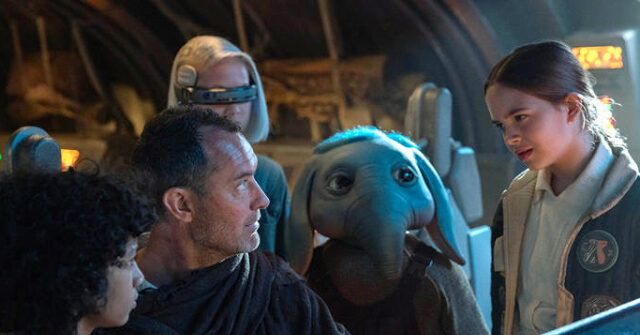Disney has again stirred discussions surrounding its approach to modern social issues within its popular franchises, particularly the Star Wars universe. The latest show, “Star Wars: Skeleton Crew,” premiered this month, featuring a narrative centered on a group of children who embark on an adventurous journey after an unexpected discovery on their home planet. While the initial episodes surprised audiences with their straightforward storytelling and lack of intense social commentary, advance reports indicate that the forthcoming episodes will begin to introduce elements tied to the LGBTQ agenda, notably the inclusion of a character with “two moms.”
Critics of Disney’s approach have voiced their concerns about the inclusion of such themes in children’s programming. Film critic Chris Gore noted the upcoming changes in “Skeleton Crew” with a mixed perspective, recognizing the show’s entertaining elements for younger audiences while lamenting the necessity to introduce modern sociopolitical messaging. Many viewers have expressed their preference for narratives that prioritize adventure without the imposition of contemporary issues, suggesting that family dynamics could have been presented without explicitly focusing on the parental identities of the characters involved.
Disney’s portrayal of LGBTQ themes isn’t a new concept; it’s been incorporated across various franchises over the years, often met with skepticism and criticism by segments of the audience. The backlash stems from the perception that these portrayals detract from the core narratives and character development that originally endeared audiences to these beloved series. The example of “The Acolyte,” which faced significant criticism for its overtly “woke” themes and ultimately flopped, has been cited as evidence of the potential pitfalls of such creative choices.
Moreover, Disney’s broader trend of integrating progressive themes into its storytelling extends beyond just the Star Wars franchise. The company has faced scrutiny across its film and television properties, with accusations of prioritizing ideological messaging over engaging storylines aimed at children. The concern is compounded by reports of significant financial losses in the company’s film division, with losses reported to exceed $628 million since 2023, attributed largely to films perceived as adhering too closely to a “woke” agenda.
The cultural implications of Disney’s decisions cannot be overlooked, as they align with a wider cultural dialogue on representation and inclusivity. While many advocate for diverse storytelling that resonates with a modern audience, there are those who feel that such efforts can often seem forced or detracting from the original appeal of long-standing franchises. The critical reception of these creative decisions will likely continue to influence not only the Star Wars universe but also Disney’s broader approach to storytelling for the foreseeable future.
In conclusion, as “Skeleton Crew” moves forward with its story, the examination of how Disney balances inclusivity with storytelling will be pivotal. While the initial reception may indicate a preference for traditional adventure narratives, ongoing adjustments to incorporate more socially charged themes reflect a larger trend within the entertainment industry. How audiences respond to this blend of creativity and messaging will shape future projects and perhaps dictate the direction Disney takes with its iconic properties.

